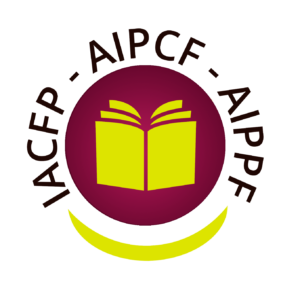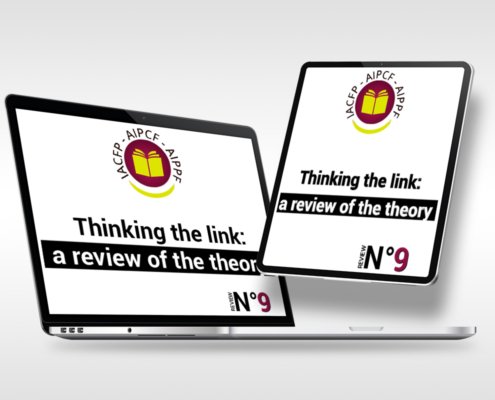REVIEW N° 9 | YEAR 2011 / 1
EDITORIAL
ANNA MARIA NICOLÒ
This issue is dedicated to the topic of link. Previous numbers have examined link sufferance and violence inside links. Instead, this number explores the pertinence of the theme that is one of the topics which creates great interest in the scientific world of family and couple psychoanalysis today.
As we can see when reading some of the following articles, the explanatory hypotheses of this new concept are many. All the contributing authors are making an effort to reconsider it, reconceptualise it and understand its scientific contribution and corresponding clinical dynamics. Nevertheless, it is still very complex and many of its implications are unknown. We can’t even hide the existence of areas which seem to be confusing, that are repeated, attempts at naming through new words and old and proven acquisitions.
It seems the not even our world can escape fashion, and the concept of links is certainly in fashion at the moment. However, we have to recognise how revolutionary this topic can be when used correctly in various settings from individual to family to institutional and also the one of training for potential users.
The problem is that the topic of links is not present in meta-psychology and, as Kaës reminds us, it is paradoxical compared to classical psychoanalytical thought given that it pushes us towards hypothesizing about the existence of “a psychic reality without a subject but which is placed outside it”.
The question is complex and, at the base there is the problem of whether a mind and unconscious can exist outside the subject. The authors of this issue believe that the unconscious may be observed in the inter-psychic and trans-psychic that is the real “topos” of our study or, as I prefer to say, in the interpersonal, a term with which we can also include the body of people who are involved, their behaviour and their inter-actions.
For quite some time I have been insisting that reasoning, observing, diagnosing and taking care of, all begin from the point of view that changes us radically and also changes our idea of pathology to include not only the intra-psychic diversities but also the interpersonal ones, not only our projections but also the modifications that we cause in the other or vice versa, but above all, the existence of a third product that is co-constructed by interacting people.
In the wake of some of the authors who are involved in family psychoanalysis, I suggest using “links” for those reciprocal, mutual, interdependent relationships that exist between members of a couple or family and which are co-constructed between the members and that become a third object which conditions them. I think that this term will allow us to better describe the bi-lateral or multi-lateral nature of such relationships that envisage the use of the other, not so much as the object of projection but rather, as an intermediary agent as being subject in reality. Therefore, it is another that is partly unknown or unknowable which we act upon and use and which we are also used and acted upon.
An area that allows us to see these aspects more clearly is that which occurs in more serious situations such as, psychotic families where acting in the place of thinking, speaking or representing, prevails. Where a sort of short-circuit of the conscious exists for which the subject who receives the projection feels that he is induced into behaviour, experiences or emotions which he then takes action upon without realising.
Links are studied and lived and we are immersed in links that we contribute to building. A magazine is also link with its readers, between the editors and with the writers and a link between different moments in a story that changes even though it keeps its continuity. With the end of this year and also this issue, which is the result of Ezequiel Jaroslavsky’s editorial effort, I am terminating my work as editor in chief of the journal.
The journal arose at the same moment as the foundation of our association in Montreal. During the first Board meeting I was given the task of involvement in publishing services, and the first job that I did was that of founding a journal which expressed the multiplicity of ideas and people that came from different parts of the world and from different backgrounds and training and who met to set up AIPCF. The editorial committee was the expression of this mix and of the journal, which I have directed, has followed the objective of being a forum of exchange and comparison. The committee was also the expression of such with its multiplicity of languages and people who came from all corners of the world. The journal soon formed a reading committee in order to carry out anonymous evaluation and various issues began to follow, often witnessing topics of international conferences and also looking at new and original ideas or topical themes for debate. All this intense work was carried out thanks to the passionate input from many, from the editors to the readers and from the editorial secretary Ms. Francesca Enuncio who I want to thank most warmly. Sometimes, even when making concerted efforts, we cannot deny that there is still much work to be done. Despite the displeasure of leaving a commitment that, from the beginning I have thought deeply about, together with the initial group of editors, contributed to set up, I have decided to resign my position on the journal. Other demanding work commitments have made it impossible for me to continue. Besides, I believe the possibility of alternating between positions of responsibility is a guarantee of creativity for the undertaking, for its growth and enrichment. I am therefore sure that after these initial pioneering years, the journal will continue to take on an ever increasingly significant role in the scientific and cultural world. Something that is interesting not only for our society but also all those who study these settings. Therefore, I trust for both it and ourselves that it becomes that which for the Greeks was Agora; the place of exchange and democratic enrichment, the place central to the “polis” that so marked the history of ideas.

